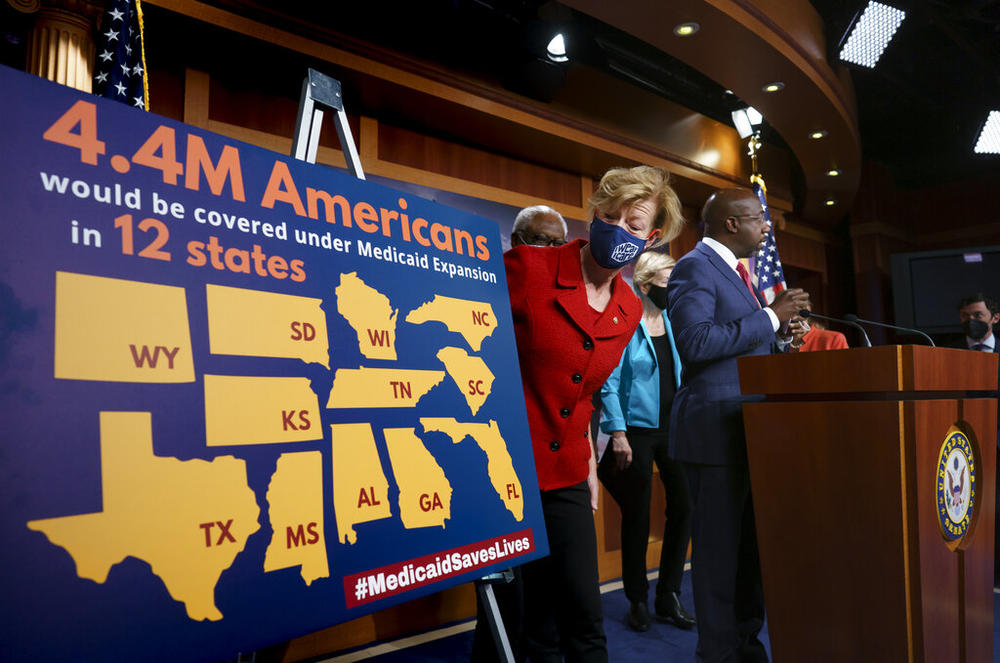
Caption
Sen. Tammy Baldwin, D-Wis., peers at a chart while Sen. Raphael Warnock, D-Ga., right, tells reporters they want to include specific provisions of their legislation, the Medicaid Saves Lives Act, in the larger economic package known as the Build Back Better Act to address the Medicaid coverage gap and provide an immediate fix to close the gap in Georgia and several other states, at the Capitol in Washington, Thursday, Sept. 23, 2021.
Credit: (AP Photo/J. Scott Applewhite)

